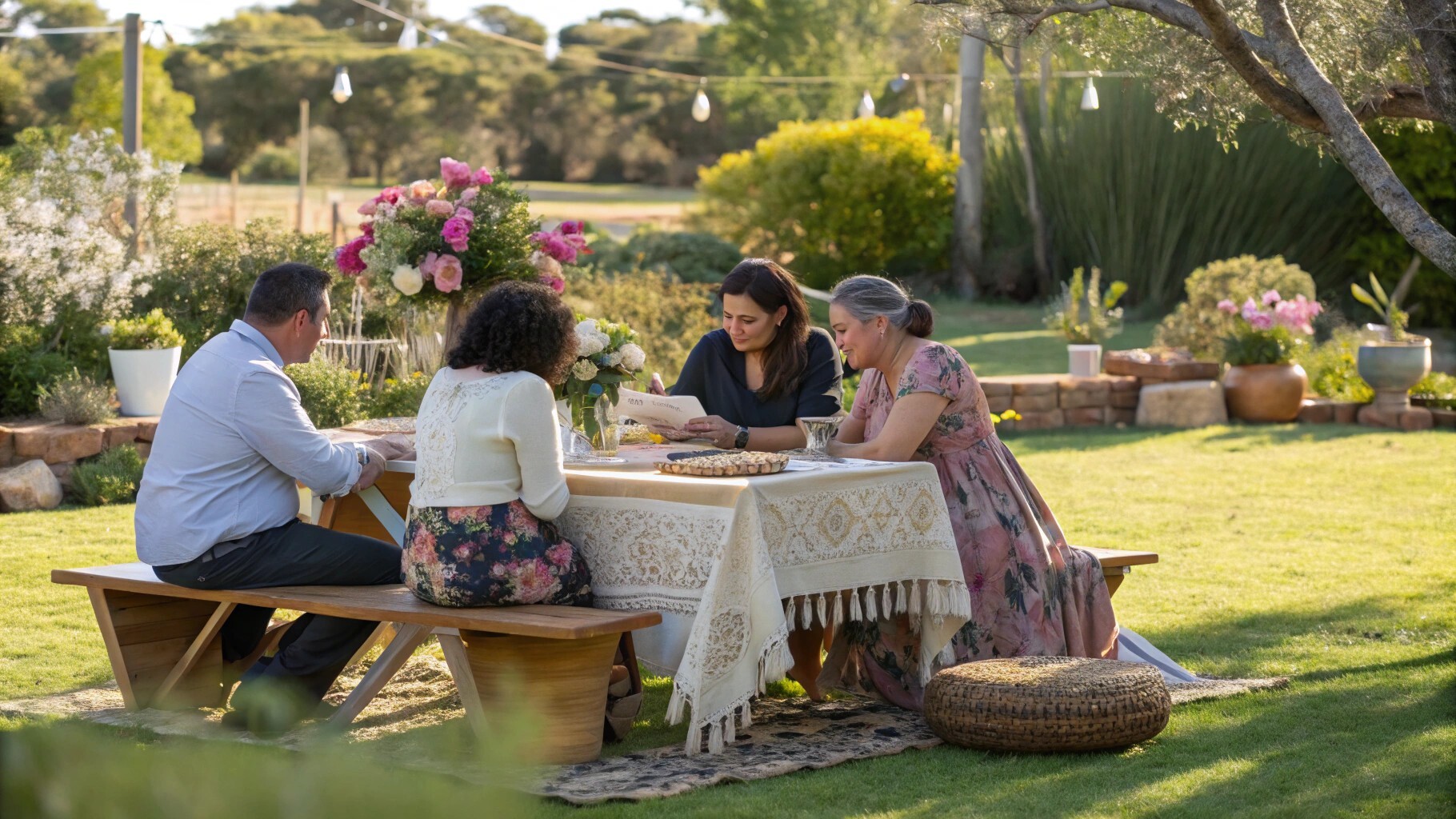
Understanding Collaborative Practice in Estate and Succession Planning
Quick Answer: Collaborative practice in estate and succession planning fosters family harmony by reducing conflict and ensuring smoother transitions. Hollingdales champions this approach in Perth, working with families and advisers to create structured, empathetic solutions that prioritise understanding and communication.
The need for effective estate and succession planning has never been more critical. As families navigate intergenerational wealth transfer, the potential for conflict can be significant. Hollingdales champions collaborative practice, positioning itself as a facilitator that works with advisers and families to promote understanding, reduce conflict, and support smoother and more lasting transitions across generations. This article explores the benefits of collaborative practice, highlights current trends, and offers actionable insights for families in Western Australia who are facing challenges with their succession planning.
The Importance of Succession Planning
Succession planning is not just about deciding who takes over a family business or inherits an estate; it is a comprehensive process that involves clear communication, trust, and mutual understanding among family members. This planning is essential for maintaining family harmony and ensuring that everyone feels valued and heard. By adopting a collaborative approach, families can effectively outline their wishes, address concerns, and prevent potential disputes before they arise.
Industry professionals suggest that engaging in succession planning early can significantly enhance family relationships. The collaborative practice allows families to work together, often with their professional advisers who are trained to work together not against each other. The facilitator (or collaborative coach working alongside collaborative professionals) guides the discussions and ensures that each voice is acknowledged. This proactive approach reduces the risk of misunderstandings, enabling families to focus on preserving their legacies.
Key Elements of Effective Estate Planning
Estate planning involves creating a framework for how assets will be distributed after a person passes away. It typically includes the creation of wills, trusts, and other legal documents that reflect one's wishes. However, a traditional adversarial approach to estate planning can often lead to family conflict, especially when disagreements arise regarding interpretations of the deceased's intentions.
Hollingdales emphasises the benefits of collaborative estate planning, which involves open communication among family members and their advisers. This method not only clarifies expectations but also fosters a supportive environment where family members can express their desires and concerns without fear of judgment. By prioritising family harmony, the collaborative practice often results in more satisfying outcomes for everyone involved.
Conflict Resolution Strategies in Estate and Succession Planning
Conflict is a natural part of human relationships, and estate planning is no exception. Families may face disagreements regarding asset distribution, roles in the family business, or even differing views on end-of-life care. It's essential to have effective conflict resolution strategies in place to address these issues constructively.
Experts recommend several strategies for successful conflict resolution in estate planning:
- Facilitated Dialogue: Bringing in a neutral third party can help facilitate respectful and constructive discussions, allowing family members to express their perspectives in a safe space.
- Active Listening: Encouraging family members to listen to one another can foster empathy and understanding, making it easier to find common ground.
- Consensus Building: Collaborative practice focuses on finding solutions that work for everyone, rather than insisting on individual preferences, or perpetuating power imbalances or perceived unfairness.
By employing these strategies, families can mitigate potential conflicts and strengthen their relationships while navigating the complexities of succession planning.
Structured Alternatives to Adversarial Processes
Traditionally, estate disputes have often ended up in court, resulting in lengthy and costly legal battles that torment and fracture families. Sadly that trend has increased in the past decade as we are witnessing the massive intergenerational transfer of wealth. However, the growing demand for collaborative approaches highlights a shift towards structured alternatives that emphasise family well-being and communication. Collaborative practice allows families to engage in facilitated discussions that prioritise their relationships and shared goals.
Hollingdales advocates for structured processes that focus on preserving relationships while ensuring practical outcomes. By utilising frameworks like collaborative law, families can avoid adversarial tactics and work together to reach amicable agreements. This not only saves time, heartache and resources but also protects family bonds, ensuring that the legacy of the deceased is respected and upheld.
Real-Life Succession Planning Journeys
Understanding the real-life implications of succession planning can provide valuable insights for families. Consider the story of a Perth family who faced challenges when their matriarch was suffering from rapidly declining health without a clear estate plan. The lack of communication led to misunderstandings and conflicts among the siblings, ultimately straining their relationships.
After engaging with Hollingdales, the family was able to participate in a facilitated succession planning process. Although stressful, this experience highlighted the importance of open dialogue and collaborative practice. Through structured conversations, they were able to share their perspectives, address their concerns, and ultimately create then document a harmonious estate plan that reflected their mother’s wishes while honouring their individual needs.
Industry Trends and Future Outlook
The landscape of estate and succession planning is evolving, with an increasing emphasis on collaborative practices across Western Australia. Families are increasingly recognising the advantages of involving advisers who can facilitate discussions and help navigate complex emotions. This shift towards collaborative practice reflects a broader societal trend prioritising family harmony and open communication.
As demand grows for these collaborative approaches, Hollingdales is committed to leading the way in Perth. By championing empathy and inclusivity in estate planning, they are helping families create legacies that resonate across generations.
Checklists and How-To Guides for Effective Succession Planning
To support families in their planning efforts, here are some key steps to consider:
- Engage in Early Planning: Start discussions about succession planning well in advance to allow for thoughtful consideration.
- Involve All Stakeholders: Ensure that each family member has a voice in the planning process to promote inclusivity and transparency.
- Utilise Professional Guidance: Work with advisers who specialise in collaborative practice to facilitate discussions and provide expert insights.
- Establish Clear Communication: Create a culture of open dialogue where family members feel comfortable expressing their thoughts and feelings.
- Document Everything: Ensure that all agreements and decisions are clearly documented to avoid misunderstandings in the future.
By following these steps, families can create a robust succession plan that not only preserves their assets but also strengthens their relationships.
Conclusion: Embrace Collaborative Practice with Hollingdales
In summary, estate and succession planning is a critical journey that requires careful consideration and collaboration. By embracing a collaborative practice, families in Perth can reduce conflict, preserve harmony, and ensure smoother transitions across generations. At Hollingdales, we are dedicated to supporting families and advisers through this process, providing the tools and guidance necessary for successful planning.
If you are considering estate or succession planning, we invite you to reach out for a confidential discussion about how Hollingdales can assist you in navigating this important journey. Together, let’s create a legacy that reflects your family’s values and aspirations.
Explore more resources on our website: Articles and Resources and learn about our approach: About Michael Hollingdale.
For additional insights, visit our links page: Useful Links.
At Hollingdales, we believe that by working together, families can make estate and succession planning a positive experience that enhances relationships and secures legacies.



